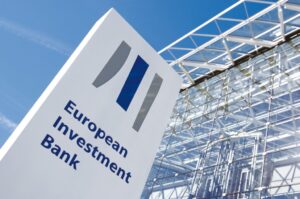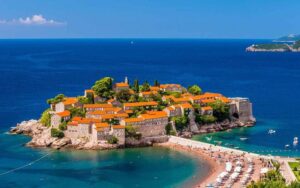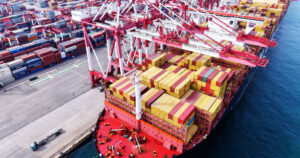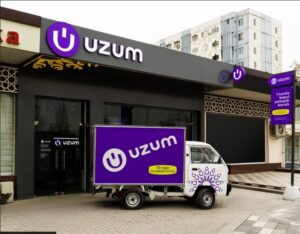
The European Investment Bank (EIB) has allocated EUR46.2 million to support Ukrainian municipalities in restoring vital public infrastructure and providing essential services, backed by an EU guarantee under the European Commission’s investment program for Ukraine.
“This funding is directed where it is most needed: to restore and support essential public services for Ukrainian citizens. This support comes at a critical moment, as Russia intensifies its attacks on civilian infrastructure. The European Commission intends to continue its close cooperation with the European Investment Bank, using the Ukraine Assistance Program to provide vital support to Ukraine and its people,” said Valdis Dombrovskis, European Commissioner for Economy and Productivity, Implementation, and Simplification.
In particular, EUR 28 million has been allocated under Ukraine’s Urban Public Transport Projects I and II, which support the renewal of urban transport fleets with modern, energy-efficient vehicles. Thanks to this funding, Kyiv, Lviv, and Mykolaiv will receive new buses; Zaporizhzhia, Ternopil, and Kremenchuk will receive trolleybuses; Dnipro and Kamyanske will receive trams; and Uzhhorod will receive electric buses.
As part of Ukraine’s municipal infrastructure development program, the EIB has allocated EUR 13.3 million to modernize vital local services. The funding supports the reconstruction of public lighting systems in Dnipro and Kamyanske, the modernization of water supply and sewage systems in Lutsk, the improvement of energy efficiency in schools and kindergartens in Sumy, and the improvement of solid waste management in Lviv for the reclamation of the Hrybovychi landfill.
An additional EUR 4.9 million has been allocated under the Ukraine Public Buildings Energy Efficiency Program to support projects in the cities of Rivne, Korets, and Kovel. The sub-projects focus on the energy-efficient modernization of schools, kindergartens, and medical facilities, including insulation, window replacement, and heating system upgrades. This funding is complemented by an E5P investment grant for hospital buildings, such as the Kovel City District Territorial Medical Association, which helps improve energy efficiency, comfort, and quality of service in healthcare facilities.
The European Investment Bank has been operating in Ukraine since 2007. Following Russia’s full-scale invasion in 2022, the Bank stepped up its financial support to help strengthen the country’s resilience and rebuild its infrastructure. Since then, the EIB has provided EUR4 billion in financing to Ukraine.

According to Serbian Economist, Montenegro will become a party to the Convention on a Common Transit Procedure and the Convention on the Simplification of Formalities in Trade in Goods from November 1, 2025, reports the State Customs Service of Ukraine.
The decision was made by the European Commission’s Directorate-General for Taxation and Customs Union (DG TAXUD). Once the convention enters into force, Montenegrin customs authorities will be able to perform the functions of customs offices of departure and destination for international shipments under the NCTS procedure.
The State Customs Service of Ukraine emphasized that the expansion of the network of countries participating in the Convention contributes to the development of uniform digital standards and reduces customs clearance time at borders.
The Common Transit Convention and the Convention on the Simplification of Formalities in Trade in Goods are international agreements aimed at simplifying the movement of goods between countries through uniform customs procedures and the NCTS (New Computerized Transit System) electronic system.
Convention participants can file a transit declaration once for the entire route chain, which reduces administrative costs and speeds up the delivery of goods. For countries seeking integration with the EU, participation in the NCTS system opens up access to a single digital customs space and increases attractiveness for businesses, especially logistics and export-import companies.
Serbia officially acceded to the Convention on February 1, 2016. On that day, the country began practical application of the NCTS system.
https://t.me/relocationrs/1614

Shareholders of the insurance company “Suzirya” (Kyiv) Oleksiy Tugay, who owned 20.009% of the insurer, reduced his stake to 0%, according to information posted by the company in the information disclosure system of the National Securities and Stock Market Commission (NSSMC).
At the same time, it is noted that Natalia Oksenko, who owned 4.947% of the insurer, increased her stake to 8.495%, and Anna Pysmenna, who previously did not own any shares, now owns 8.849%.
The insurance company provides almost all types of insurance specified by the current legislation of Ukraine.
According to the NSSMC, in the first quarter of 2025, the company’s shareholders were Rostislav Pokrovsky (73.037%) and Oleksiy Tugay (20.009%).

In September, the Chinese economy showed higher-than-expected growth rates in industry and retail trade, indicating a gradual recovery in domestic demand and business activity.
According to the National Bureau of Statistics of China, industrial production grew by 6.5% year-on-year, the highest rate since June. In August, growth was 5.2%, and analysts had expected a slowdown to 5%.
The largest contributors were:
manufacturing — +7.3%,
mining — +6.4%,
oil and gas — +8.9%,
automobile production — +16%,
computers and telecommunications equipment — +11.3%.
Growth was recorded in 36 of 41 sectors of the economy. Overall, industrial production increased by 6.2% in the first nine months of 2025 compared to the same period last year.
Retail sales in September grew by 3% year-on-year. This is slightly less than in August (3.4%), but still better than analysts’ forecasts (2.9%).
The largest increases were in sales of food products (+6.3%), jewelry (+9.7%), and clothing (+4.7%). Car sales rose by 1.6%, while petroleum product sales fell by 7.1%.
Since the beginning of the year, retail turnover has reached 36.6 trillion yuan (about $5.1 trillion), which is 4.5% more than a year earlier.
Investments in fixed assets as a whole declined slightly, by 0.5%, mainly due to a decline in the construction sector (-13.9%). At the same time, investments in infrastructure and manufacturing grew by 1.1% and 4%, respectively.
The unemployment rate in September fell to 5.2% from 5.3% a month earlier.
Experts from the Experts Club analytical center note that the Chinese economy remains stable despite the slowdown in global demand and difficulties in the real estate sector.
Reference: Experts Club.
For several years now, China has ranked first in the world in terms of economic size, calculated in terms of purchasing power parity (PPP), ahead of the US and the EU. This confirms its status as the largest industrial and consumer center on the planet.

Reuters reports that Uzbek startup Uzum, the largest player in the fintech and e-commerce sector in Uzbekistan, is considering listing on the London Stock Exchange. This was announced in an interview with the agency by the company’s co-founder Nikolai Seleznyov.
According to him, London has been added to the list of potential venues for an IPO, alongside the Nasdaq (New York), Abu Dhabi, and Hong Kong exchanges, where interest in Uzum has grown following investments by Chinese company Tencent.
Founded in 2022, Uzum quickly became Uzbekistan’s most valuable startup, valued at $1.5 billion. In August, the company raised $70 million in equity capital from Tencent and the American fund VR Capital, becoming the first “unicorn” (startup unicorn) in the country’s history. Currently, about 17 million Uzbeks use Uzum’s services every month.
Seleznyov noted that the initial public offering (IPO) is planned for 2027, but it is too early to discuss a specific target valuation.
“If we were to go public on the London Stock Exchange, we would definitely consider the FTSE 100,” he said.
During the latest round of funding, Uzum also attracted the attention of investors from the UK and the Middle East. According to Seleznyov, many of them are interested not only in the company itself, but also in the economic potential of Uzbekistan, which in recent years has been actively pursuing reforms under the leadership of President Shavkat Mirziyoyev, opening the country to international investment.
Seleznyov explained that Uzum is considering a foreign IPO due to liquidity and investor base structure issues that affect the company’s valuation. At the same time, he stressed that strengthening its position in the domestic market remains a priority:
“We are not seeking overly rapid geographical expansion. First, we want to truly conquer and dominate Uzbekistan to prove that we are capable of building a system that is competitive on a global level,” he said.
Thus, as Reuters notes, Uzum is not just a fast-growing fintech startup, but a symbol of a new wave of technological development in Uzbekistan, demonstrating the growing confidence of international investors in the country’s economic reforms.